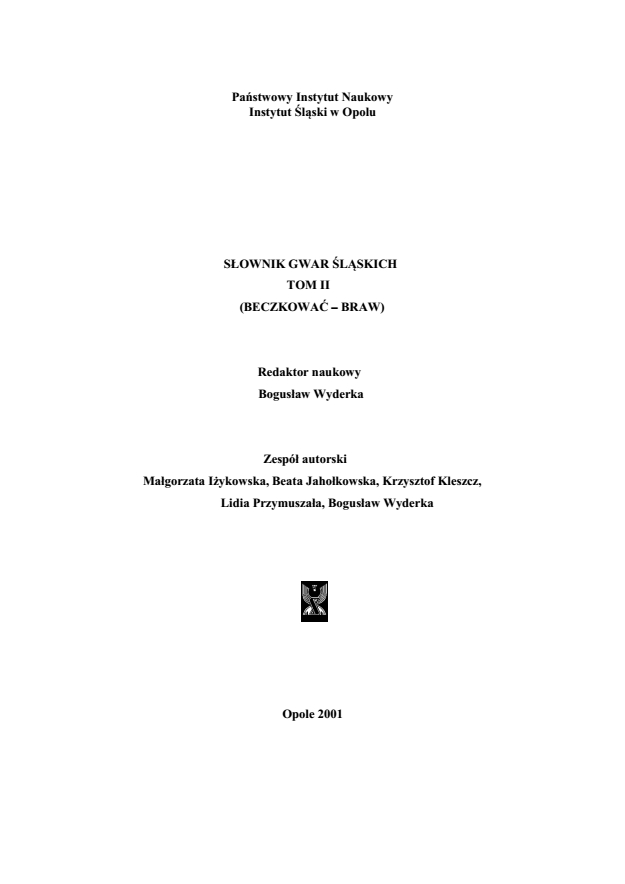
Słownik Gwar Śląskich, tom II (BECZKOWAĆ - BRAW)
"Glossary of Silesian Dialects" is the result of many years of scientific work of several generations of linguists from the Silesian Institute in Opole, Poland.
More...We kindly inform you that, as long as the subject affiliation of our 300.000+ articles is in progress, you might get unsufficient or no results on your third level or second level search. In this case, please broaden your search criteria.

"Glossary of Silesian Dialects" is the result of many years of scientific work of several generations of linguists from the Silesian Institute in Opole, Poland.
More...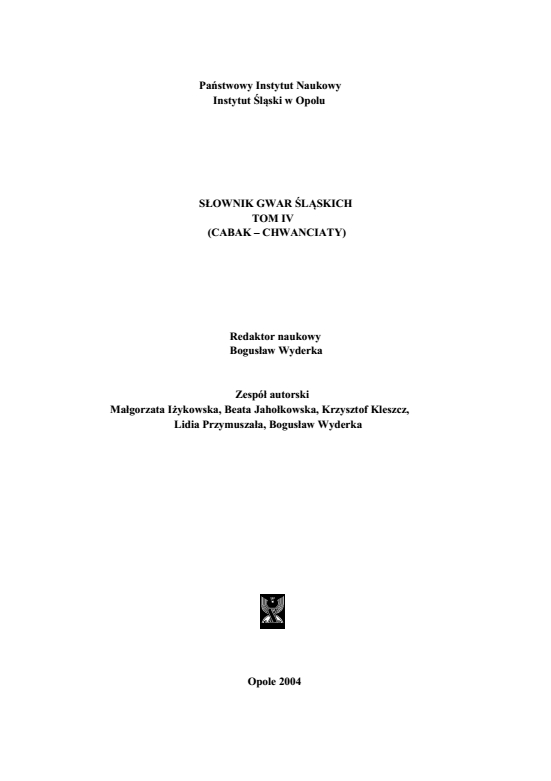
"Glossary of Silesian Dialects" is the result of many years of scientific work of several generations of linguists from the Silesian Institute in Opole, Poland.
More...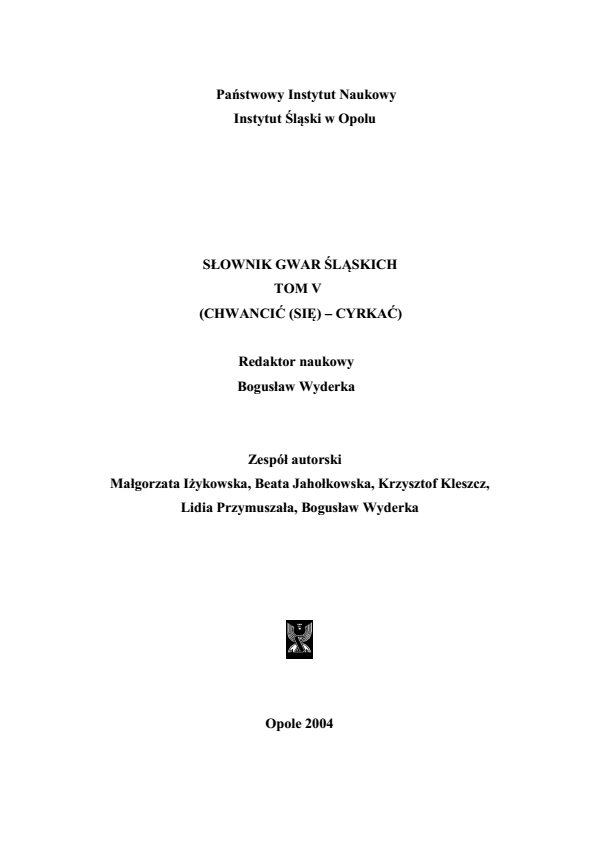
"Glossary of Silesian Dialects" is the result of many years of scientific work of several generations of linguists from the Silesian Institute in Opole, Poland.
More...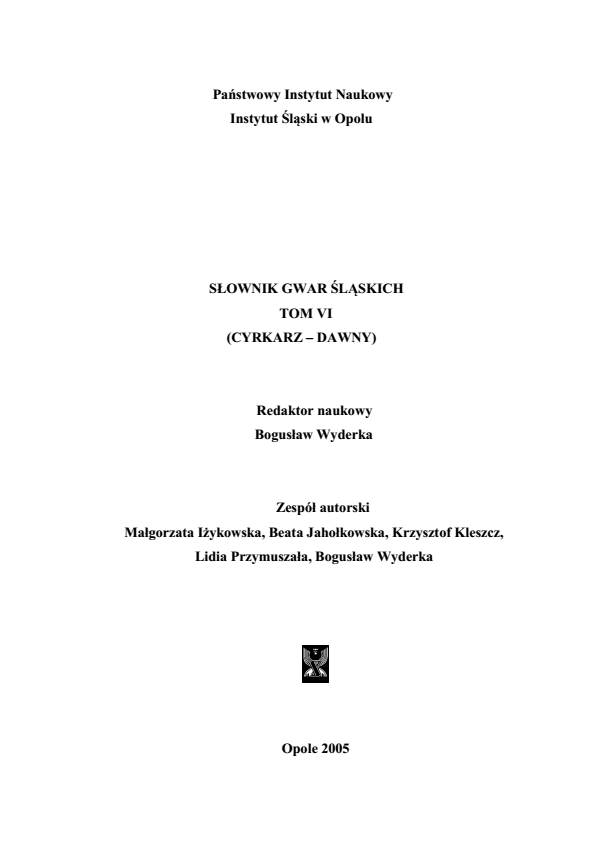
"Glossary of Silesian Dialects" is the result of many years of scientific work of several generations of linguists from the Silesian Institute in Opole, Poland.
More...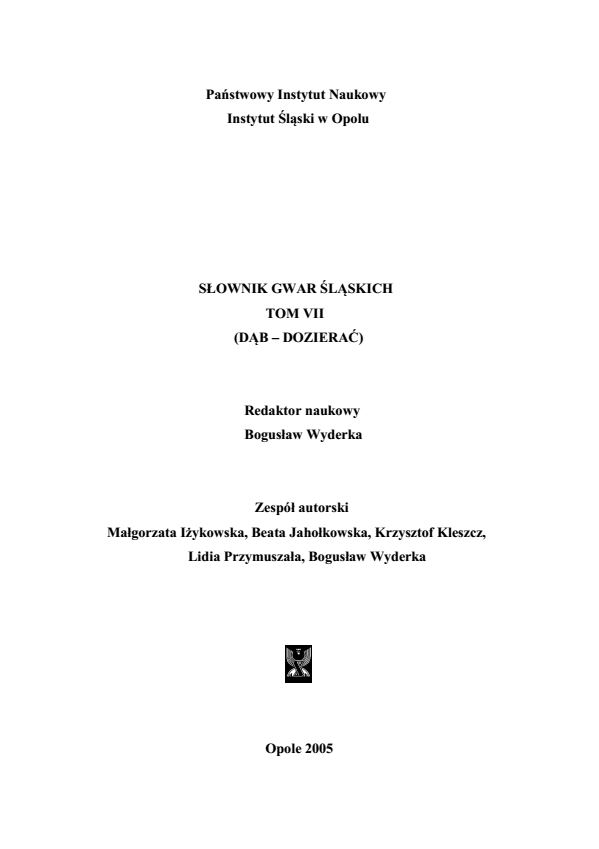
"Glossary of Silesian Dialects" is the result of many years of scientific work of several generations of linguists from the Silesian Institute in Opole, Poland.
More...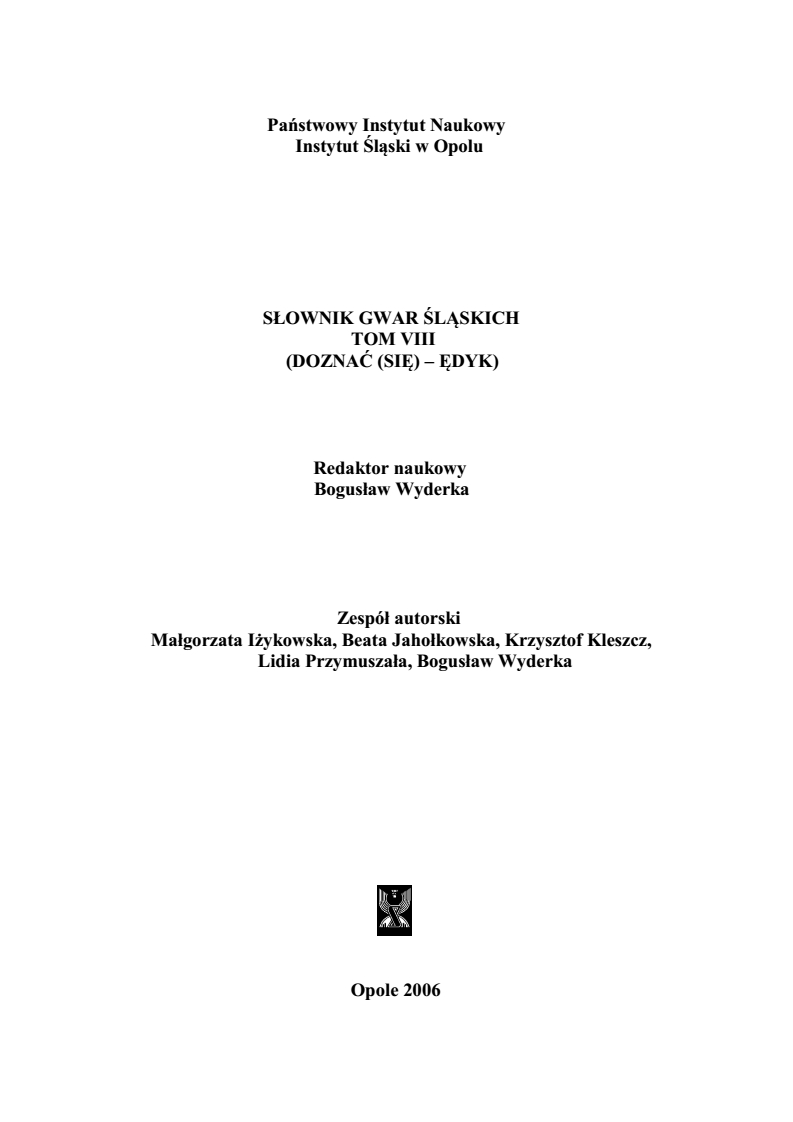
"Glossary of Silesian Dialects" is the result of many years of scientific work of several generations of linguists from the Silesian Institute in Opole, Poland.
More...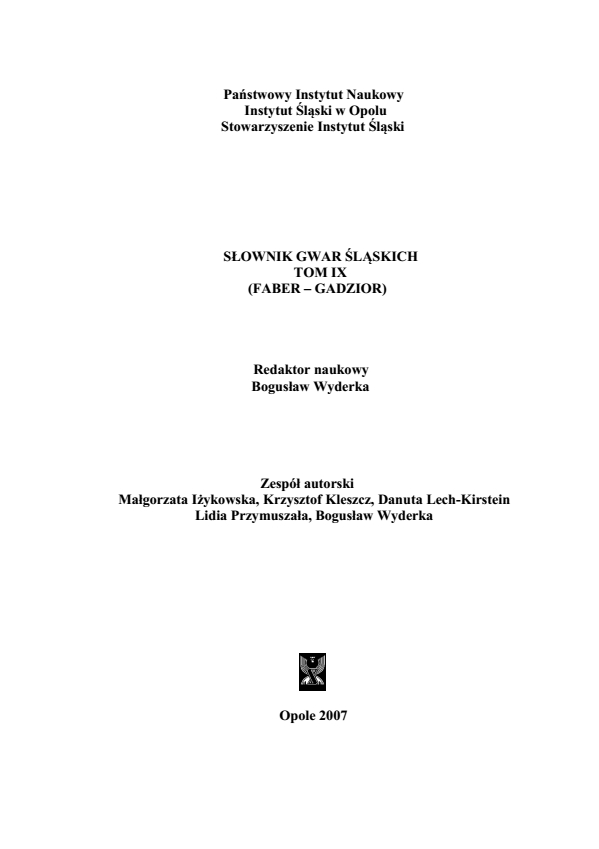
"Glossary of Silesian Dialects" is the result of many years of scientific work of several generations of linguists from the Silesian Institute in Opole, Poland.
More...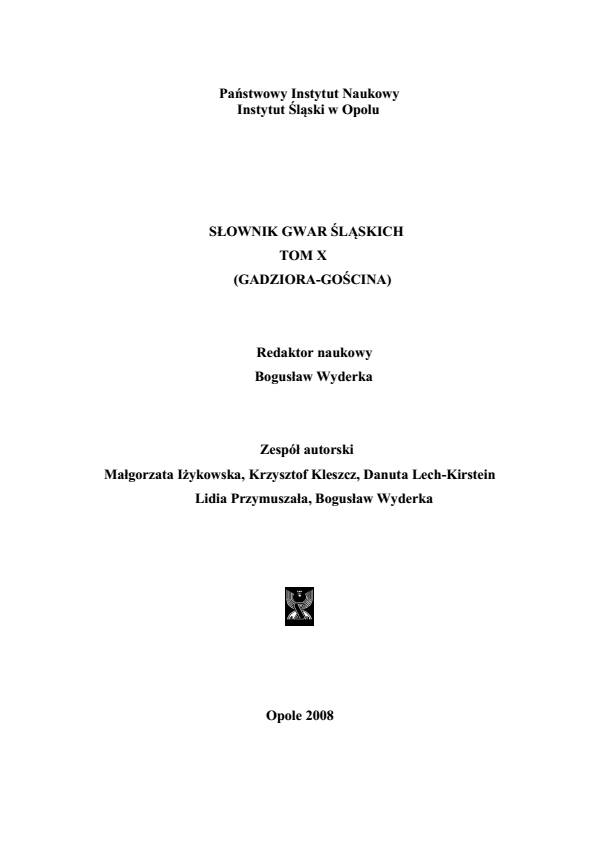
"Glossary of Silesian Dialects" is the result of many years of scientific work of several generations of linguists from the Silesian Institute in Opole, Poland.
More...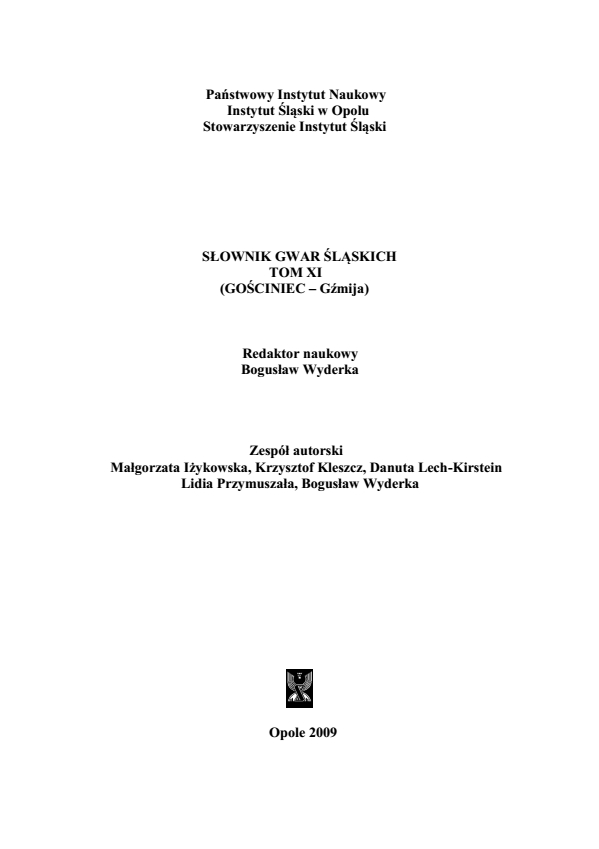
"Glossary of Silesian Dialects" is the result of many years of scientific work of several generations of linguists from the Silesian Institute in Opole, Poland.
More...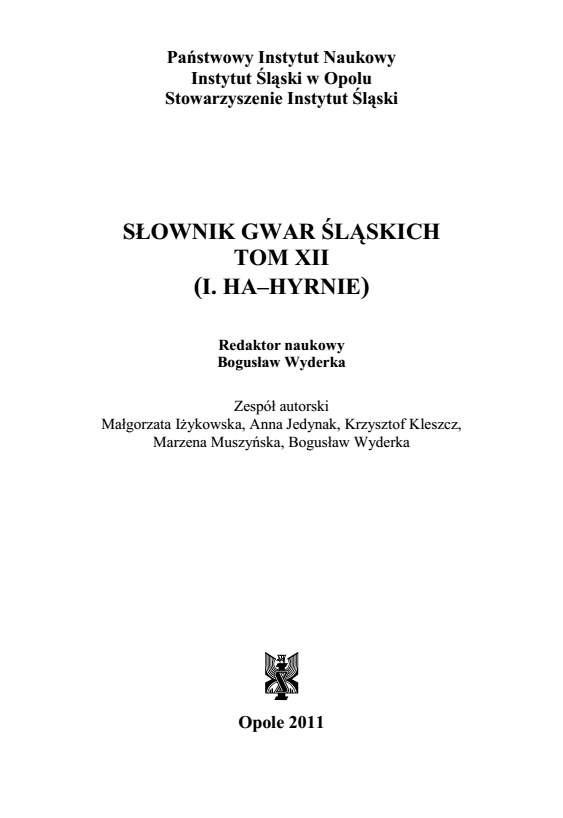
"Glossary of Silesian Dialects" is the result of many years of scientific work of several generations of linguists from the Silesian Institute in Opole, Poland.
More...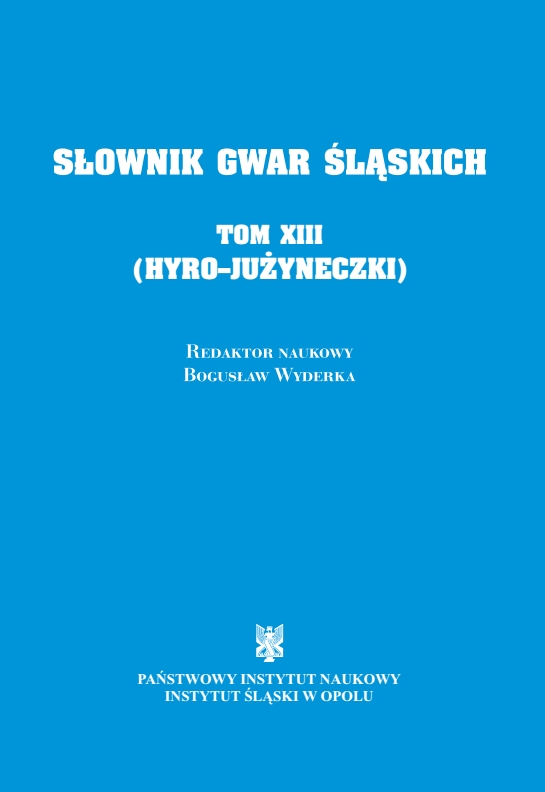
"Glossary of Silesian Dialects" is the result of many years of scientific work of several generations of linguists from the Silesian Institute in Opole, Poland.
More...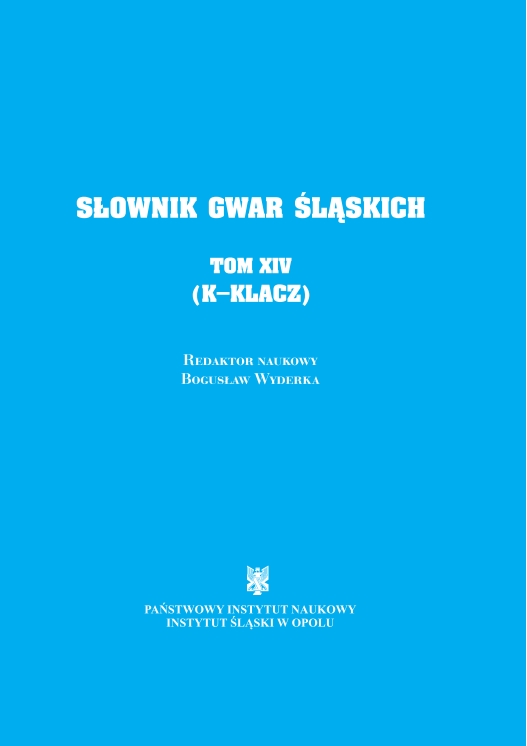
"Glossary of Silesian Dialects" is the result of many years of scientific work of several generations of linguists from the Silesian Institute in Opole, Poland.
More...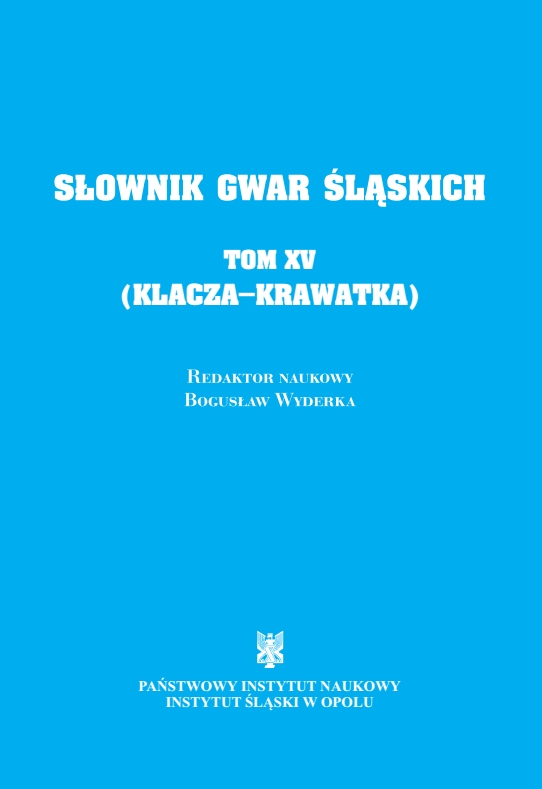
"Glossary of Silesian Dialects" is the result of many years of scientific work of several generations of linguists from the Silesian Institute in Opole, Poland.
More...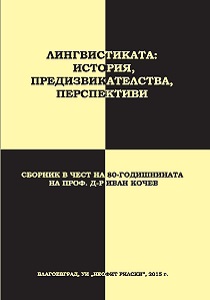
The main aim of this paper is to elicit the word-formative characteristics of desub-stantivized names in the text of the Vratsa Gospels from the XIII–XIV c. In the focus of the study are the modificational categories. The formations are analyzed and classified, overviewing suffixes to show the variety of word-formatives used in the Middle Bulgarian period of the development of the Bulgarian language.
More...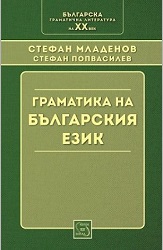
With the series "Bulgarian Grammar Literature of the 20th Century", East-West publishing house aims to familiarize the Bulgarian reader with the outstanding contribution of prominent Bulgarian linguists in the development and formation of our literary linguistic norms in the 20th century, as well as in the development of Bulgarian linguistic science in general. All the editions included in here have been out of print long ago or difficult to find bibliographically. The first two grammars in the series will be phototype editions. This will enable Bulgarian specialists-linguists to look into the history of the development of the Bulgarian grammar literature from the beginning of the 20th century, which predetermined the further development of Bulgarian and general linguistics, showed its valuable contribution to our national cultural treasure.
More...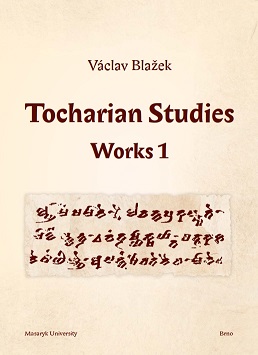
The book represents a collection of articles devoted to Tocharian etymology and grammar, plus two detailed bio- and bibliographical portraits of scholars working in the field of Tocharian, namely Werner Winter and Pavel Poucha.
More...
This monograph presents a detailed analysis of word order behaviour of possessive pronouns in Old Czech noun phrase. This is a phenomenon that has not been systematically studied in Czech paleo-bohemistics yet. The data analysed in this book come from Old Czech prose written approximately between the mid-fourteenth century and the end of the fifteenth century.
More...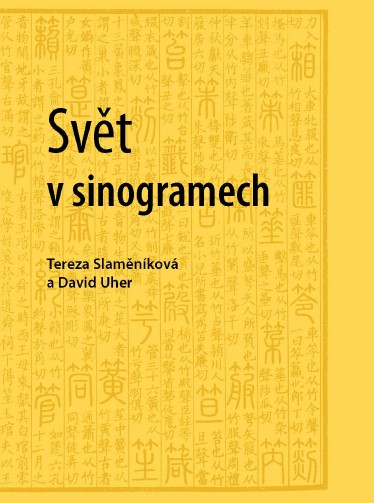
Languages using a pleremic writing system, from which Chinese is undoubtedly the most widespread, show a much deeper connection between language units and their graphic representations since it involves the semantic dimension. What makes the Chinese writing system a truly unique phenomenon is how its graphics capture the meaning of the represented linguistic unit. This semantic connection was primarily established through graphic components with their own meanings, so-called determinatives. Although their use was primarily associated with an effort to distinguish by graphic means the (often too many) different meanings of one sinogram, the entire system also undoubtedly provides unique insight into how ancient Chinese experienced reality. The semantic diversity of sinograms subordinated to one determinative forms a particular network of contexts with some relationship to the basic concept. This book provides a concise Czech translation of the oldest known study on Chinese grammatology Shuo Wen Jie Zi (Meaning Explanation of Primary Sinograms and Structure Analysis of Secondary Sinograms) which endeavors to reflect on the Chinese writing system as an essential bearer of Chinese culture. Based on the procedures of Chinese cultural linguistics, it adopts the author's determinative-based setting and analyses the so-called semantic profile of all the 540 determinatives by arranging sinograms into groups sharing certain semantic features
More...
This article offers a new reading of some works of Dimitar Matov (1864-1896) – a remarkable Bulgarian linguist from the end of 19th century. Despite his short life, his scientific legacy remains as a valuable achievement in Slavic and Balkan studies, and can be seen as a good example of excellent activity in linguistics and ethnography. He was educated in the city of Kharkov, as well as in Vienna, Leipzig and Sofia, and his analyses reflect the level of late 19th-century linguistic scholarship, as they focus mainly on word etymology and historical reconstructions in the tradition of Franz Mikloshić, August Leskien, Gustav Weigand and Vatroslav Jagić. One of the best works of this author, which has a programmatic character, is dedicated to Greek-Bulgarian language contacts. It is obvious that a very large-scale project was conceived, which was even to develop as an academic school in the following decades; however, the early death of the author was a great loss for Balkanology as was noted even then by a number of his contemporaries.
More...
The book focuses on the publication of entries documenting admissions to urban law in Sieradz between 1475 and 1539. The main part of the book consists of a critical edition of the source text—a printed version of the Latin text transcribed from the manuscript and carefully edited.
More...